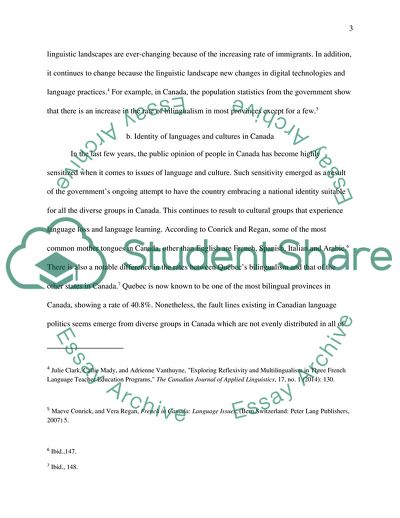Cite this document
(Identity and Culture in Canada Article Example | Topics and Well Written Essays - 2500 words, n.d.)
Identity and Culture in Canada Article Example | Topics and Well Written Essays - 2500 words. https://studentshare.org/culture/1865845-what-is-the-importance-of-language-to-culture-trace-the-history-of-french-language-protections-in-canada-should-languages-be-protected-by-the-constitution-why-or-why-not
Identity and Culture in Canada Article Example | Topics and Well Written Essays - 2500 words. https://studentshare.org/culture/1865845-what-is-the-importance-of-language-to-culture-trace-the-history-of-french-language-protections-in-canada-should-languages-be-protected-by-the-constitution-why-or-why-not
(Identity and Culture in Canada Article Example | Topics and Well Written Essays - 2500 Words)
Identity and Culture in Canada Article Example | Topics and Well Written Essays - 2500 Words. https://studentshare.org/culture/1865845-what-is-the-importance-of-language-to-culture-trace-the-history-of-french-language-protections-in-canada-should-languages-be-protected-by-the-constitution-why-or-why-not.
Identity and Culture in Canada Article Example | Topics and Well Written Essays - 2500 Words. https://studentshare.org/culture/1865845-what-is-the-importance-of-language-to-culture-trace-the-history-of-french-language-protections-in-canada-should-languages-be-protected-by-the-constitution-why-or-why-not.
“Identity and Culture in Canada Article Example | Topics and Well Written Essays - 2500 Words”. https://studentshare.org/culture/1865845-what-is-the-importance-of-language-to-culture-trace-the-history-of-french-language-protections-in-canada-should-languages-be-protected-by-the-constitution-why-or-why-not.


